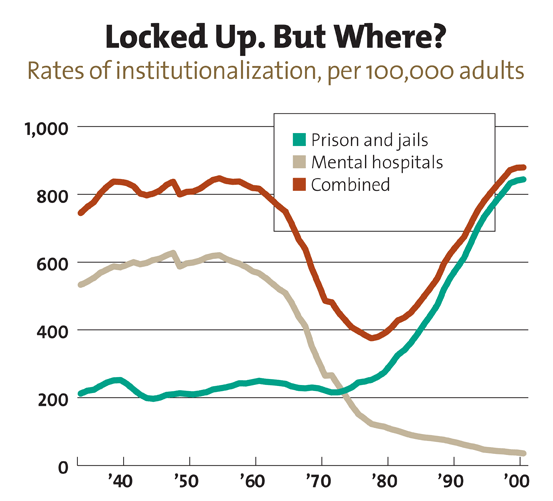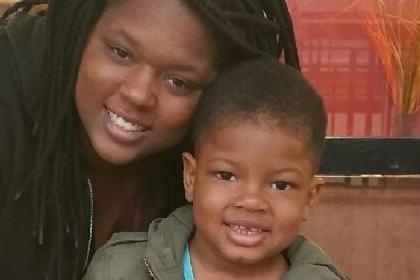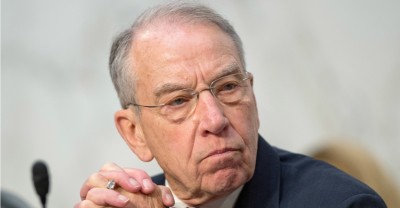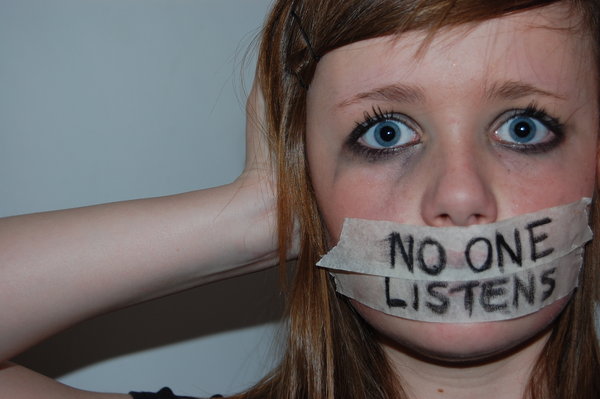How America’s criminal justice system became the country’s mental health system
“I was very delusional, erratic, confrontational, and paranoid,” Kevin said. “So when they came, they tased me.”

courtesy of VOX
by German Lopez published on March 1, 2016 on VOX
“I was very delusional, erratic, confrontational, and paranoid,” Kevin said. “So when they came, they tased me.”

(2-29-16) What’s the key to helping someone with a mental illness recover?
Is it robust community mental health services? Is it by forcing someone to take anti-psychotic medication? Is it housing? Jobs?
I’ve spent the past ten years traveling our country touring programs, examining services and talking to mental health experts, other parents, family members, and persons who have recovered. And I’ve come to believe that everything we do to help people recover is a temporary band-aid if the individual who is sick doesn’t want to get involved in their own recovery.
Lessons I’ve Learned: The Key To Recovery Is Engagement is the title of a new speech that I will be delivering to audiences beginning this year. (Here is a five minute snippet of my speech.)
This doesn’t mean that I’m no longer going to speak about the inappropriate incarceration of persons with mental illnesses in our jails and prisons. I still plan to talk about the need for Crisis Intervention Team training, jail diversion, mental health courts, and re-entry programs. I’m still going to speak about my book, CRAZY: A Father’s Search Through America’s Mental Health Madness, and how my son’s breakdown and arrest led to me spending ten months inside the Miami Dade County jail following persons with mental illness through the criminal justice system and back onto the streets.
GOD KNOWS WHERE I AM (Trailer) from Brian Ariotti on Vimeo.
(2-26-16) I am delighted that filmmaker Brian Ariotti has made a documentary about the life and death of Linda Bishop. The film, which was shown this week at the Big Sky Documentary Film Festival, raises important questions about how we treat persons with serious mental illnesses.
I first heard about Linda Bishop’s death in late 2009 when I met her sister, Joan Bishop, after giving a speech in New Hampshire. I was horrified when Joan told me how her sister had died after being discharged by the New Hampshire State Hospital with no real follow up care. Shortly after meeting Joan, I published two blogs exposing the tragedy in February 2010. (see Linda’s Story Part One and Part Two.)
Within hours after Linda was discharged, she broke into an abandoned farmhouse where she survived on apples while waiting for divine guidance. Alone, psychotic and slowing starving herself to death, Linda kept a diary up to within a few weeks before her death.
Oct. 8
So this is my 5th day of freedom – basic synopsis – left NHH at 11 am…then into woods…So here I sit for the second day, have water and apples awaiting further instructions. Can’t walk too far on just apples. Don’t really want to talk to anyone and even attempt to explain the situation… Crying now. Just disappointed again. Don’t see how I can live on apples until Advent...Dec. 18th.
This is my 13th day without food. Fell yesterday when coming in from getting snow for water, hurt left knee, shoulder and cheekbone, writing this lying down – only time I feel good is when I am sleeping because then I forget.
It was estimated that she died sometime in January 2008 but her body wasn’t found until May. She had been diagnosed with bipolar disorder.

(2-22-16) Maryland Judge Hayward West should be congratulated on his decision to place Romechia Simms, the Maryland mother found pushing her dead child on a swing last year, in treatment for her schizophrenia rather than sending her to jail.
Simms had stopped taking her medication when she became psychotic, began hearing voices, and took Ji’Aire Lee to a park where she pushed him in a bucket swing for more than 40 hours, including in the rain. The 3 year-old died of hypothermia and dehydration.
Public defender Elizabeth Connell said the agreement to keep Simms in community treatment represented a “progressive way of thinking” and was a “testament to the progress of science and society.” I agree.
Charles County State’s Attorney Tony Covington wasn’t pleased, but said he didn’t have much choice after three psychologists found Simms not criminally responsible for her actions.

Dear Mr. Earley,
Thank you for your testimony at the Senate Committee on the Judiciary hearing entitled: “Breaking the Cycle: Mental Health and the Justice System”… Attached are additional written follow up questions from Committee members…”
From Chairman Chuck Grassley:
I believe it is uncontested that mental health and mental illness have played at least some, if not the primary role in incidents that are now known by chilling, geographic, monikers such as Virginia Tech, New Town, Aurora, and Roanoke. As the Wall Street Journal reported late last fall, we need to make sure we are getting to these individuals when they are struggling with mental health issues, but before they spiral into full blown crisis.
Given that there are multiple schools of thought on how best to handle the mental health crisis as it relates to mass murders, what do you believe would be the most effective way to keep mentally ill individuals from harming others? Put another way, what can we do to help these ill individuals, but also prevent yet another mass murder?
RESPONSE FOR THE RECORD FROM PETE EARLEY, AUTHOR, JOURNALIST
As the parent of an adult son with a severe mental illness, I cringe whenever I see a news report about someone who is psychotic committing a violent act, such as a mass shooting.
It is important to put these shootings into context.
*Overall, persons with mental illnesses commit only five percent of all crimes. (1.)
*Overall, persons with mental illnesses are more likely to be victims than perpetrators of violence. (2.)
*When it comes to mass shootings, a study found that only 11 percent of mass shootings between 2009 and 2015 involved gunmen suspected of having mental health problems. (3.)

(2-19-16) I received emails last week from two readers who were angry that the Senate Judiciary Committee had asked me to testify but had not asked anyone with a mental illness to speak during a recent congressional hearing.
“People with mental illnesses can speak for themselves,” one declared. “You have no right to tell your son’s story,” the other noted.
My response to their emails surprised them. Why? Because I agreed with them – although I didn’t appreciate the accusatory tone of their complaints.
Every time that I have been asked to testify before Congress, I have urged those in charge to include someone with a mental illness on the witness panel. Every time. Having a hearing about mental illness without including someone who has recovered from one is a missed opportunity. You wouldn’t hold a hearing about heart attacks without including someone who had suffered one. I’ve always felt strongly about this. That’s why my speaker’s contract includes a paragraph that states that if I am asked to participate in a panel after a speech, that panel needs to include someone with a mental illness.
After the horrific shooting on the Virginia Tech campus, I wrote an Op Ed in The Washington Post that criticized then Gov. Timothy Kaine for not including a person with mental illness on the panel investigating that tragedy. At its first meeting, I told members of the Ad Hoc Police Practices Review Commission in Fairfax, Virginia, that it needed to include persons with mental illnesses on the commission.
"Pete Earley is a fair-minded reporter who apparently decided that his own feelings were irrelevant to the story. There is a purity to this kind of journalism..."
- Washington Post"A former reporter, Mr. Earley writes with authenticity and style — a wonderful blend of fact and fiction in the best tradition of journalists-turned-novelists."
- Nelson DeMille, bestselling author"A terrific eye for action and character. Earley sure knows how to tell a story. Gripping and intelligent."
- Douglas Preston, bestselling co-author of The Relic

Pete Earley is the bestselling author of such books as The Hot House and Crazy. When he is not spending time with his family, he tours the globe advocating for mental health reform.
As a former reporter for The Washington Post, Pete uses his journalistic background to take a fair-minded approach to the story all while weaving an interesting tale for the reader.
Sign up to receive blog posts and the latest from Pete including new books and resources.
Copyright © 2025 · Education Child Theme on Genesis Framework · WordPress · Log in